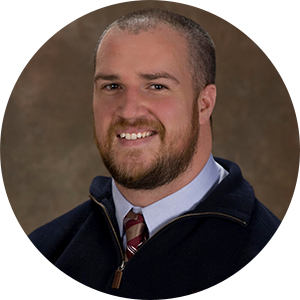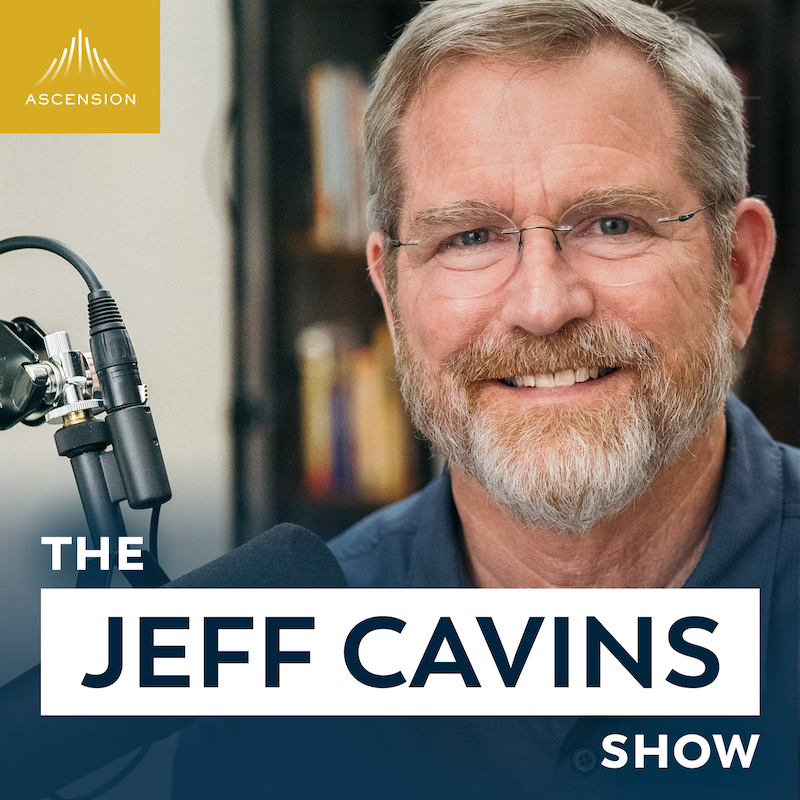In this episode, Mike and Dave answer your questions! Some of the questions involve searching for good apologetics resources, looking for clarification on Mary’s reaction to the Resurrection, understanding how to evangelize the socially uninformed, and more.
Snippet from the Show
Human formation really accelerates the adoption of spiritual practices.
Shownotes
“
Question 1: Apologetics Resources (5:20)
Hello Gomer and Dave,
I am writing to you because I recently baptized my son and had the opportunity to evangelize to family who attended my son’s baptism. However, I noticed that I butcher or choke when asked certain questions. For example, someone asked me “what does baptism do?” I replied that it forgives sins and that it unites my son to the Catholic church as a priest, king and prophet. This leads to follow up questions, such as “how can a baby have sins?” and “how does someone baptized somehow become a priest”? I found myself unprepared or inexperienced in talking about these responses. The funny thing is that I have devoured tons of apologetics publications so I should have some of this stuff memorized. However, I don’t answer many of those questions often so I’m trying to figure out a way to better prepare myself for the future.
Here’s my question: Is there anything out there that provides just a 1 or 2 sentence response to some of the most common questions about our faith? I sometimes only have a few minutes to share our faith with others, and when I do I want to be totally prepared.
Allen
Question 2: Traditional Latin Mass vs. Novos Ordo (12:14)
Hi EKSB!
I was listening to EKSB episodes, and in part 1 with Dr. Matthew Minerd, Gormley said something that really stood out to me about the eastern rite (@37:55). It led to a really interesting discussion on mass, worship, and eastern rite.
I’ve been having a hard time with family thinking the TLM is the end all, be all of masses. I get that it’s more reverent in some ways – definitely more than the worst NO – but there are some things in the NO that seem true too, like some of the involvement/inclusion of the laity.
And then Dr. Minerd said (@44:25) the clericalization of the TLM. That really stood out to me. This is what I’ve been struggling with! (I think? I’ve always been a St. Francis, mass of poverty kind of person – probably just how I grew up).
The whole discussion really verbalized things I haven’t been able to do with my family about the TLM. I don’t read much, but I don’t see the early church fathers performing the TLM the way they do today. I don’t see the early underground church doing the TLM. Some things in the TLM feel too much like pomp and court. It seems like there’s something missing in between the NO and the TLM.
Maybe I’m wrong, and that’s fine. Maybe you guys can elaborate on differences between liturgies\rites, or there is a book or a talk that you can recommend about the development of the mass. I know Gormley mentioned doing a series on liturgy, maybe that will elaborate, but it felt nice to hear some things I’d been feeling put into words I couldn’t find.
Grateful for any response. Love the podcast!
Best+God Bless,
Flow
Question 3: Evangelizing the Socially Uninformed (26:30)
Hi,
My name is Daniel Sahyouni, and I’m a long-time listener and also a FOCUS team director at a college campus in Chicago. I loved the episode with Josh Packard, the research he does is fascinating. I wanted to offer both a thought on my experience with some of his findings, and also a question.
A question: It was mentioned the rapidly decreasing rate of social maturity in young people. I would very much agree that I see that in the students I work with. How do you help less and less socially mature people experience “belonging” with each other? It seems that they often don’t have the social skills to even have the community or friendship I want them to, and their idea of friendship often involves things like snapchat that to me seem to be an obstacle to actual friendship.
The problem is even more compounded when working with student leaders who I am trying to coach to go and evangelize. I often find myself working with a socially unformed student that I somehow am going to send to evangelize a group of equally socially unformed students that even I have trouble reaching. In a nutshell, how do we respond to the lack of social maturity in our ministry?
-Daniel
Question 4: Mary and the Resurrection (35:39)
Dear Mike “Gomer” Gormley and Dave “The Winged Hussar/Can’t Be Googled” van Vickle,
I love listening to you guys and have been so blessed by your lives. You’re both great examples for me as a Christian husband and father, and you’re both incredibly fun to listen to. I just hope that someday I get to meet you both in person.
I have a question regarding Mother Mary after the Resurrection. I’ve been praying the Rosary and I thought about Jesus’ Resurrection, how the Disciples and Apostles reacted when they first heard the news. The Bible talks a lot about their reaction as great joy, perplexed, and lots of positive adjectives, but it doesn’t say anything about the reaction of His Mother. Why is that the case? I’m just thinking that she would have shown the most joy and the Bible would have shown something like a great embrace between Mother and Son, but it’s really silent on that. Is there something from Church Tradition that would have this kind of scene?
When I pray the Rosary, I use it to kind of put myself in her shoes as I meditate on the decades. But during the Resurrection, I find it odd that nothing is mentioned other than the fact that she was present with the disciples. Anyway, I still love the Rosary!
Thanks so much,
Alex
Question 5: Resources on the Feminine Genius (38:43)
Howdy!
I just listened to your most recent EKSB episode on the feminine genius, which was amazing! Thank you so much for all the great content y’all talk about on your podcast. I receive a lot of formation through EKSB.
I’m a physics PhD student who’s discerning a vocation to consecrated virginity lived in the world. For several years, I’ve felt strongly that the Lord is calling me to be a light in physics, and that my femininity is integral to that mission.
Dave mentioned that he’s done a lot of study on the feminine genius and spiritual warfare. I’ve been wanting to do an in-depth study of authentic Catholic femininity so I can better understand and live my femininity, but have struggled with finding good reading beyond Mulieris Dignitatem, JP2’s Letter to Women, and Edith Stein’s Essays on Woman. Do you have any additional book recs, besides Lisa Cotter’s new book? I’m an alumna of the University of Dallas, where I learned how to read nerdy saints like Aquinas.
Thank you!
MacKenzie
Resources
- Email us at eksb@ascensionpress.com
- Text “EKSB” to 33-777 to subscribe and be added to the Every Knee Shall Bow email list.
- Visit Dave’s website www.thecatholictruthaboutangelsanddemons.com and www.artofevangelization.com
- Visit Mike’s website at www.layevangelist.com
Meet Your Hosts

Michael “Gomer” Gormley
Michael spent 17 years in full-time parish ministry and is now the Mission Evangelist for That Man Is You!, a men’s apostolate for Paradisus Dei. Michael is a frequent speaker at conferences, retreats, and parish missions all over the US and Canada.
He is the founder and creative director of LayEvangelist.com, and hosts three Catholic podcasts: Every Knee Shall Bow, Catching Foxes, and Becoming God.
Michael is married to his college sweetheart, Shannon, and has four beautiful and hilarious children: Kateri, Cecilia, Noah, and Thomas.

Dave VanVickle
Dave VanVickle fell in love with the Lord at the age of fourteen and has since dedicated his life to bringing others into a radical relationship with Christ.
He is a speaker and retreat leader who focuses on proclaiming the universal call to holiness, authentic Catholic spirituality, spiritual warfare and deliverance. Additionally, Dave has over ten years of experience assisting priests with their ministries of exorcism and deliverance.
Dave married his late wife Amber in 2010. He now resides in Pittsburgh with his five children: Sam, Max, Judah, Josie and Louisa.





